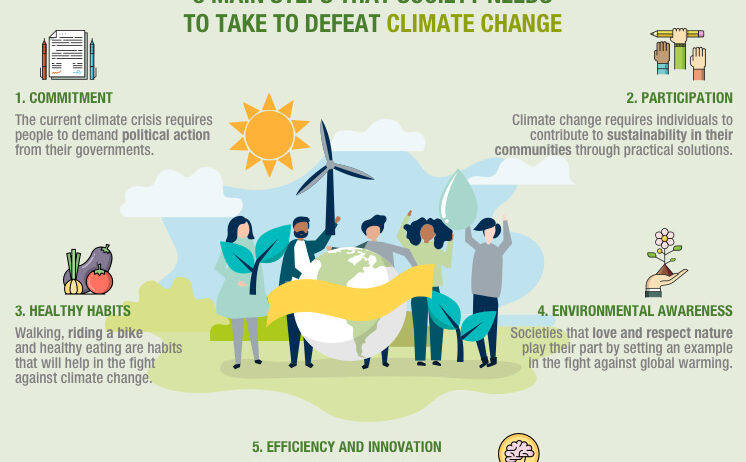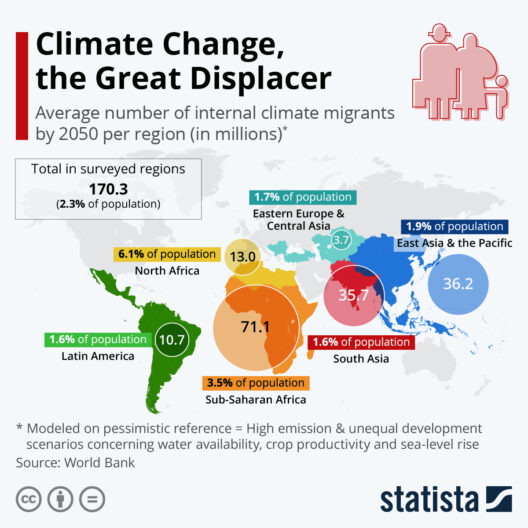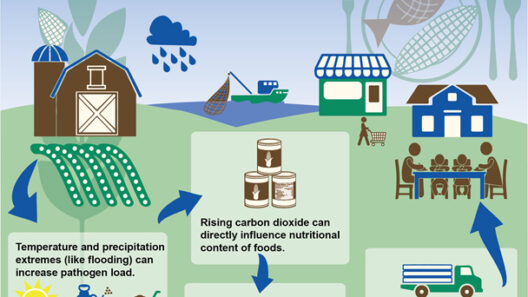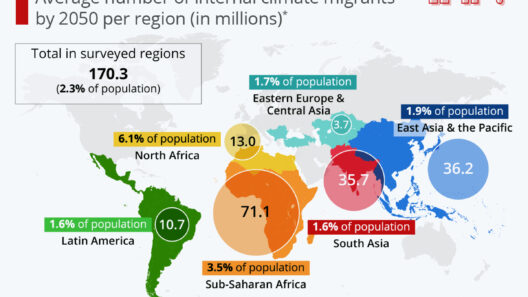Climate change is an unprecedented challenge that engenders a spectrum of environmental, social, and economic impacts worldwide. To combat this existential threat, individuals, communities, organizations, and governments must engage in concerted efforts to mitigate its effects. This article delineates various practical steps that can be taken to combat climate change and elucidates the broader implications of these actions.
One of the foremost strategies to mitigate climate change involves reducing greenhouse gas emissions. This can be achieved through the transition to renewable energy sources, such as solar, wind, and hydroelectric power. By making a concerted shift away from fossil fuels, which are a primary source of carbon emissions, we can significantly abate the amount of carbon dioxide released into the atmosphere. Individuals can contribute by adopting solar panels for their homes or supporting policies that favor sustainable energy production.
In addition to the transition to renewable energy, enhancing energy efficiency is paramount. This can be achieved by utilizing energy-efficient appliances, investing in better insulation for homes, and adopting smart technologies that optimize energy consumption. Simple actions, such as unplugging devices when not in use and using LED lighting, can cumulatively result in substantial reductions in energy consumption.
Transportation accounts for a significant portion of global greenhouse gas emissions. Shifting to public transport, biking, or walking can greatly reduce one’s carbon footprint. Moreover, advocating for electric vehicles (EVs) and supporting the development of EV infrastructure can expedite the transition to a cleaner transportation system. Carpooling and ride-sharing services also contribute to lowering individual emissions per capita.
Public advocacy plays a critical role in combating climate change. Engaging with local representatives to push for climate-friendly legislation is essential. Citizens can join environmental organizations that focus on advocacy and education to raise awareness about climate change issues. Collective action can lead to substantial policy shifts at the local, national, and global levels.
A key pillar in the climate crisis solution is sustainable agriculture. The agricultural sector not only contributes to greenhouse gas emissions but is also significantly affected by climate change. Implementing sustainable farming practices such as crop rotation, agroforestry, and permaculture can foster ecosystem resilience. These practices enhance soil health, conserve water, and reduce reliance on chemical fertilizers, collectively leading to lower emissions.
Moreover, reducing food waste is another substantial but often-overlooked facet of climate action. It is estimated that a significant percentage of food produced globally ends up as waste, leading to unnecessary greenhouse gas emissions. Individuals can mitigate this by planning meals, composting organic waste, and donating excess food. Furthermore, opting for a plant-based diet can significantly decrease one’s carbon footprint, as meat production is notably resource-intensive.
Water conservation is intrinsically linked to climate change. As temperatures rise and precipitation patterns shift, water scarcity becomes more pronounced. Individuals can take measures to use water more efficiently, such as fixing leaks, using water-efficient fixtures, and practicing mindful consumption. Supporting organizations that advocate for sustainable water management policies is also critical in the broader fight against climate change.
Another actionable item is the enhancement of biodiversity and ecosystem health. Protecting and restoring natural habitats, such as forests, wetlands, and grasslands, is essential for maintaining carbon sinks. Reforestation projects and initiatives to conserve existing forests can play a vital role in sequestering carbon dioxide from the atmosphere. Supporting legislation that protects wildlife and promotes conservation efforts can foster resilience among ecosystems struggling with climate change effects.
Engaging in sustainable consumerism is a tangible way individuals can impact climate change. Making conscious choices about product purchases can promote sustainability and accountability. Supporting companies that prioritize environmentally-friendly practices and products, such as those using recycled materials or engaging in fair trade, contributes to a more sustainable economy. Additionally, prioritizing local products reduces the carbon footprint associated with transportation.
Education and awareness are paramount in the fight against climate change. Raising awareness about climate-related issues can empower individuals to take action. Educational institutions can play a pivotal role by integrating climate science into curricula and promoting sustainability initiatives on campuses. Public seminars and workshops can foster a more informed populace that understands the urgency of climate action.
Finally, embracing innovative technologies can catalyze the transition towards a more sustainable future. Investments in research and development of carbon capture and storage methods, smart grid technology, and sustainable urban planning can exponentially enhance climate action efforts. Collaborating with tech firms and universities to foster innovation in these areas will yield significant benefits in reducing carbon emissions and promoting sustainability.
In conclusion, the fight against climate change necessitates a multifaceted approach that integrates individual actions with broader systemic changes. From reducing energy consumption and improving transportation methods to advocating for sustainable policies and preserving biodiversity, every effort counts. It is imperative that all sectors of society engage in this struggle, as collective action is the linchpin to creating a sustainable world for future generations. Each practical step brings us closer to combating climate change effectively and ensuring a livable planet.







